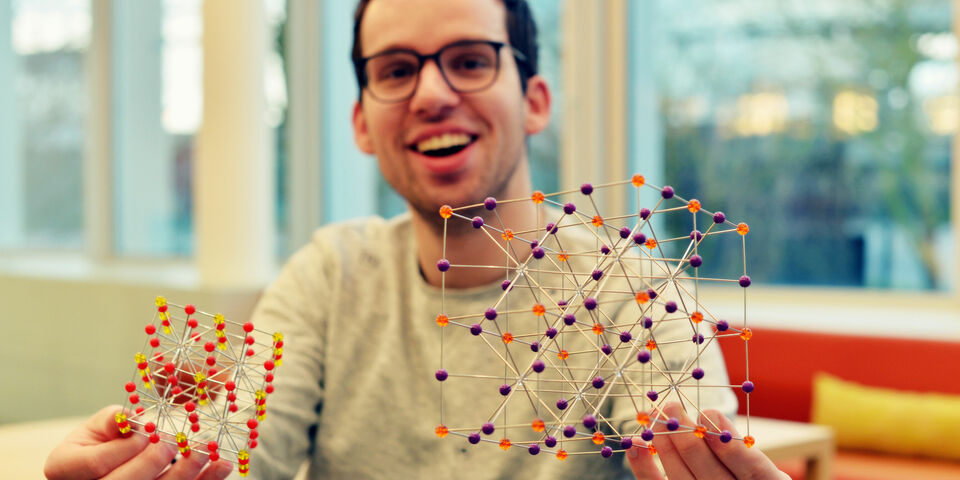“Interesting to see the people behind the theories”
It's a chance to meet other young scientists but, first and foremost, it's a chance to meet the old guard, the veterans who have been lauded with the highest award imaginable. At the end of June TU/e master's student Mike Pols - together with a few hundred other lucky souls from across the world - will have this chance in the southern Germany city of Lindau.
Update March 24th, 11:56 hrs. This article was hot off the press when the organizers announced that the Lindau Nobel Laureate Meeting 2020 will be postponed for a year due to Coronavirus. This summer the young researchers selected to attend, among them Pols, will be offered an alternative online program; their ticket for the physical meeting will remain valid until next year.
It was last fall that Pols was approached by his current thesis supervisor Shuxia Tao, Assistant Professor of Computational Materials Physics, about the annual Lindau Nobel Laureate Meeting. “After I took a course with Professor Tao, I stayed on and worked at the Center for Computational Energy Research over the summer as a student assistant. She told me about the interdisciplinary meeting being held this year, at the interface of physics, chemistry and medicine. She said, ‘Your profile is a good fit. Would you like me to propose you?’”
Pols knew of the Lindau Nobel Laureate Meeting but only distantly, “actually mostly thanks to a Cursor article on it last year. It is a unique opportunity to meet such experienced scientists. And to hear not only about their work, but also about their experiences of the academic world. These are Nobel Prize winners, people who are greatly revered as scientists, but besides that they are also regular people. I am curious about the person behind the award.”
The department proposed Pols, endorsed by Tao, Reinder Coehoorn and René Janssen, to the Royal Netherlands Academy of Arts and Sciences. KNAW assessed all the Dutch nominees and made its own selection, which it put forward to the organizers of the Lindau meetings. “I believe the Lindau organizers received something like 1,100 names, which they reduced to a group of 660 people.”
The man who discovered graphene
These hundreds of students, doctoral candidates and postdocs from all over the world will soon be meeting, at the seventieth Lindau meeting, about seventy Nobel Prize winners. “Among them are many people whose theories we have been taught in various courses. Personally, I'm really interested in Andre Geim, the man who discovered graphene, a material that plays a major role in many of my courses. The same goes for Rudolph Marcus, the man behind the Marcus theory. He is in his late nineties; amazing to think I'll soon be meeting someone like him.”
Yes, an academic junket, I guess you could call it that, admits Pols, laughing. “It is a wonderful opportunity.” As his supervisor Tao noted, it is definitely a perfect match with Pols' interest in the interface of multiple exact sciences. His primary field is materials science.
The Nobel Prize winners are not the only people Pol is keen to meet in Lindau. He is looking forward to meeting the other young researchers. “You fill in your interests in advance and then you are matched up with ‘like-minded people’. Perhaps it will give me some ideas for what I might like to do after I graduate, because that's still pretty unclear. At any rate, I know I want to continue in research, especially theoretical research; that much is almost certain.”
Perovskite solar cells
For his graduation research, which he hopes to complete in February 2021, he is focusing on perovskite solar cells. “Perovskite is a reasonably new material for use in solar cells, offering incredibly high efficiencies - but it is also highly unstable. It's not something you'd want to install on your roof just yet. Working with simulations, which we use to look at how the molecules and atoms in the material behave, I hope I can shed some light on how the material itself behaves and ultimately on how we could increase its stability.”
At the moment, like everyone else, Pols is working from home. “Fortunately, my research is more theoretical than experimental, and I can simply do my work at home. But it's not ideal.”



Discussion